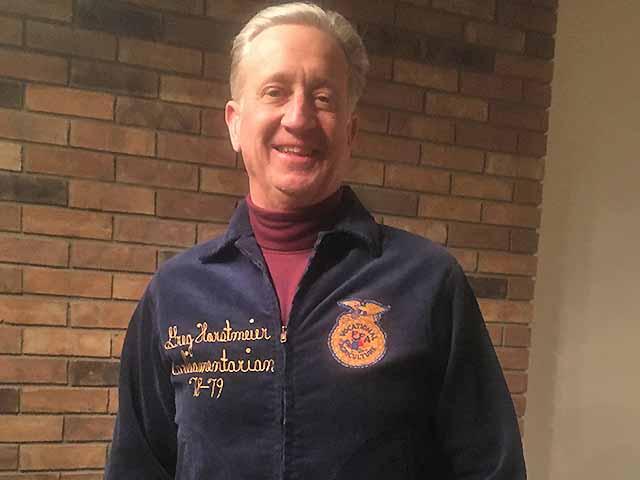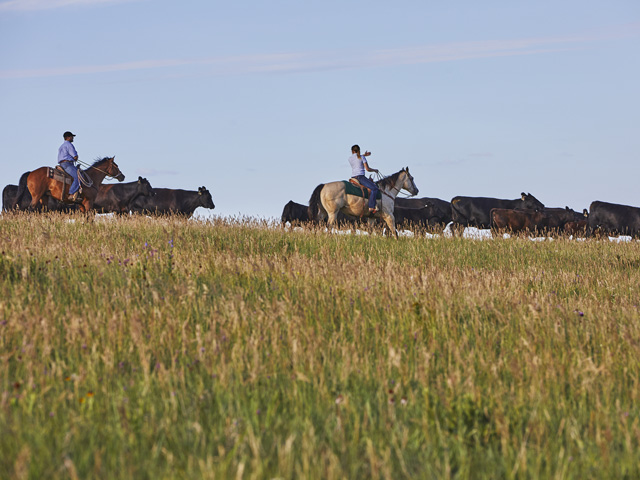New Beef Processor in the Plans
Sustainable Beef CEO Says Smaller Won't Mean Less Efficient
BIRMINGHAM, Ala. (DTN) -- In just two years, a new beef processing plant could be sitting in the center of America's heartland, giving cattle producers another outlet for marketing and reaching consumers.
The new plant, Sustainable Beef LLC, would be based at North Platte, Nebraska, and would process about 1,500 head a day. It would not have a feedlot tied to it but would depend on the region's cattle producers to supply animals based on prior sales agreements. With a name like "Sustainable Beef," expect the new plant to focus on specialty premium markets to help producers see improved profit potential.
To get to that point, David Briggs says there will be challenges to navigate. Briggs is the CEO of this new plant. He told DTN that since discussions began around Sustainable Beef, they've already seen project costs climb 50% due to supply issues and shortages. He hopes that, given time, costs will level or even drop.
A veteran of agricultural cooperatives, Briggs says Sustainable Beef will be built on a cooperative business model, but it will be an LLC. Profits will pass back to members, but those members will not be limited to cattle producers.
P[L1] D[0x0] M[300x250] OOP[F] ADUNIT[] T[]
"The concept is that cattlemen will commit cattle to the plant, and if they come in as an owner, they will share in the profits too. It's not going to be a true cooperative, because there isn't enough equity from cattlemen alone to make that happen," Briggs said of the plant. "We will need outside investment."
Land for the new plant, totaling some 80 acres, will be acquired from the city of North Platte. Briggs says the plant will be geographically well-positioned for the beef industry.
"We are one of the top two largest cattle-feeding states in the country. We raise some of the best cattle anywhere. We grow a lot of corn, so looking at feeding and finishing here, it makes a lot of sense," said Briggs. He added that, logistically, North Platte had advantages, including the ability of trucks to reach either coast in about 24 hours, and a strong rail system.
SMALLER PROCESSORS AND EFFICIENCY
Some cattle analysts have noted that smaller processors historically struggle to stay afloat, and that with a planned 1,500 daily head capacity, Sustainable Beef may not be able to compete. The JBS plant at Grand Island, Nebraska, for example, can process about 6,000 cattle daily.
Griggs says he's heard those comments about competition, but he believes this new plant would be able to handle it.
"We will have efficiencies in the process that older plants don't have. We will use less manpower per animal processed, and I believe we will be competitive on a per-unit basis. We will also be able to do a few things the bigger plants can't to get extra value out of every animal we process. We believe we will be very competitive."
Asked if the plant's name indicates they will focus on harvesting sustainably produced cattle at a market premium, Briggs said that is an ongoing part of the founders' discussions.
"Our plan is to look at sustainability, and to define that. We believe that term has different meanings for different people, so we want to help clarify that in the marketplace. Nebraska's cattle producers are sustainable, and those leading this effort are multi-generational producers. They all have another generation in the beef business coming up behind them. That's one of the main reasons they are involved in this, they want to make a difference for their children and the future of the beef industry."
Victoria Myers can be reached at vicki.myers@dtn.com
(c) Copyright 2021 DTN, LLC. All rights reserved.






